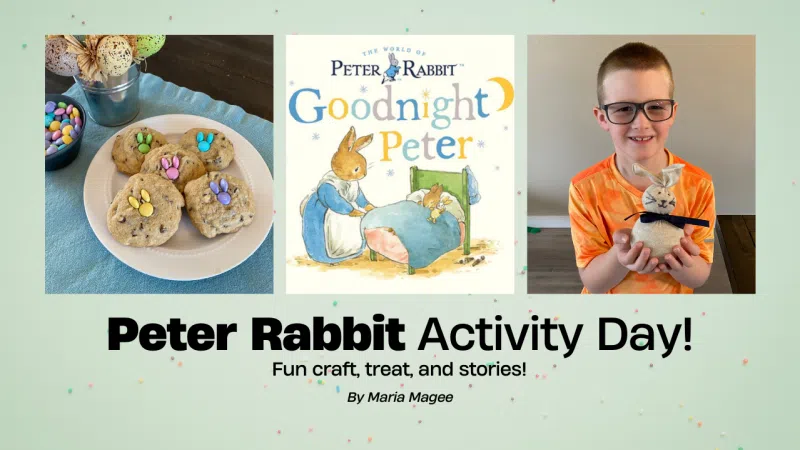It seems like a good chunk of the population is outraged right now.
Either outraged at the Super Bowl halftime show, or outraged at the outrage about it.
Social media has gotten a little crowded in this space, and this is not a piece intended to convince you that the show was either empowering or inappropriate.
But it IS intended to help you figure out what to do next. Because we need to move from our outrage to a place of productivity. Outrage by itself does nothing but eat us up inside and isolate us from one another.
And this is true of ANY controversy. Right now, it just happens to be the halftime show.
After the Outrage, Do This:
Pray. Our first reaction is visceral, and in those times it’s easy to do or say things that are hurtful or unproductive. We need to pray for not only the circumstance and the people we think are wrong, but for our OWN mindset as we wade into murky waters. We need to pray that if we are mistaken in our position, that our eyes will be opened and we won’t be too stubborn to admit it.
Identify Your Lens. We look at everything through a series of lenses. In a perfect world, that lens would be God, and God alone. But the reality is that even our experience of God is colored by our personal human experience, and it’s really important to admit that the way we see something is not the way everyone sees it. Identify and acknowledge the lenses that affect the way you see things. In this case, the halftime show. Some examples include:
- Personal upbringing (whether liberal or conservative)
- The children you’re raising (whether you’re raising all boys, all girls, or parenting both sexes)
- Your ethnic heritage and its attitude toward sexuality and/or nudity
- Your own personal sexual history and experiences
Acknowledge the Commonality. Even though we may vehemently disagree on a topic, we’re coming from a very common place and want the same for our kids: To raise children that have a healthy appreciation of their sexuality while honoring God in its expression. The end goal is the same. We just disagree on the way to go about it, and disagreement does not equal hatred nor disrespect. It just means different.
Listen. Here’s where it starts to get tricky. We need to listen to one another openly. Even if we’re staunch in our position, we can still listen with an open stance to try to understand the other side. Because here’s the thing – NONE of us will have perfect theology this side of heaven, which means we ALL are wrong about some things. Whatever issue you’re facing, humble yourself enough to acknowledge that you could be wrong about this. It doesn’t mean you’re trying to be convinced or that your faith isn’t sure, but the open stance also invites others to do the same. If we’re all just shouting but nobody’s listening, we’re not getting anywhere.
Here’s an example. On Sunday I invited moms to weigh in on the halftime show in an open, respectful, and kind conversation. And these moms obliged. We were able to weigh in without feeling shamed about our positions and to disagree without feeling attacked. It was a healthy and mature discussion.
BUT.
In my initial query I posed two very specific questions: “If you have strong feelings that the halftime show was amazing, I’d love to hear about your thoughts on modesty and sexuality and how to raise our kids in a way that honors the gospel,” and “If you thought that it was inappropriate, how do we teach our children that sexuality is not shameful or something to be feared?”
Ladies, LOTS of people weighed in (respectfully and kindly) with their impressions of the halftime show. But ZERO people – on either side of the debate – answered those specific questions in their initial answers. The few that did, did so after being pressed for specifics. This is not a criticism, because I absolutely loved the conversation. This is just something I noticed the following day and was an eye-opening observation.
It seems we all want to be heard (myself included), but we don’t always want to listen.
Be Empathetic. Try to understand the position of those on the other side. Acknowledgement does not mean agreement, but we will never have open dialogue if you don’t have empathy for your neighbor and understand where they’re coming from. It’s entirely possible to think the halftime show was an amazing display of culture and athleticism while acknowledging why it felt sexualized to many. It doesn’t diminish your position that it was inappropriate for public consumption if you admit you understand why some found it empowering.
In fact, after all the uproar I sat down and re-watched the halftime show in its entirety. I’d wager to say I paid even closer attention than I did the first time because I did it with intentionality. I wanted to watch it with the opposite lens of the one I’d been viewing it through for the past couple of days. And while my position didn’t change, it was a really helpful exercise because I do understand the position of the people who feel differently. I don’t necessarily agree, but I get it. It’s okay to acknowledge and live in some gray areas.
Think Before Speaking (or Posting). Think about whether what you’re saying or posting brings people together or divides us further. It’s one thing to converse or text one-on-one in private, but anything posted to a social media site (and that includes commenting on private threads) is public. Mutual friends can see what you’ve said. Acquaintances who don’t know you well can get a negative impression that removes any opportunity for further influence. Posts and comments like, “Haters, sit down!” or “That was just a strip show!” only invite agreement from like-minded individuals. They don’t encourage healthy discussion or do anything to build relationships. It only divides us further.
Admit Areas of Uncertainty. As I mentioned before, it’s okay to have some gray area. Admitting there are some things you struggle with even in a tightly-held position does not display weakness. It displays humanity. It’s okay to admit, “I do believe in teaching my children modesty, but will the way I teach them affect their feelings of sexual freedom in marriage?” or “I’m teaching my girls that their bodies are beautiful and not shameful, but I’m not sure how this approach translates to raising my boys in such a sexualized culture.”
Admitting our struggles invites others to share their own wisdom and experiences, whereas pretending that we’ve got it all together puts us behind a wall and creates distance between us.
In fact, I’ll be honest about my own areas of uncertainty in this whole debate. Through discussions with both people who agree and disagree with my position, I’ve realized that I don’t have a real idea of what Biblical modesty is. I mean, I’ve read stuff. And I’ll trade verses back and forth with you to maintain my position that it’s modesty of wealth and character and not necessarily physical modesty, because that supports my position. But you know what? I haven’t really done my research in a way that brings about true understanding – with an open mind and a humility to admit I’m wrong. So that’s what I’m committing to do next.
Do Your Follow-Up Research.
After you’ve admitted uncertainty, commit to spending time to shore it up. Go to the source and spend time in the Word. Pay attention to context and don’t just be selective in choosing verses that seem to agree with your position. Read multiple interpretations (including those that disagree with your initial stance) with an open mind and heart, and pray fervently for guidance. Don’t hold your position so tightly that you fail to humble yourself to truly be transformed by whatever it is God teaches you.
Mama, this job isn’t easy. It’s controversial. There are a lot of things we do differently – and when the stakes feel so high in the raising of our children, it’s easy to get outraged when we feel we’ve been attacked. More than ever, it’s important to find ways to come together and recognize our commonalities more than our differences. Let’s stop being outraged, and instead start learning from one another.












